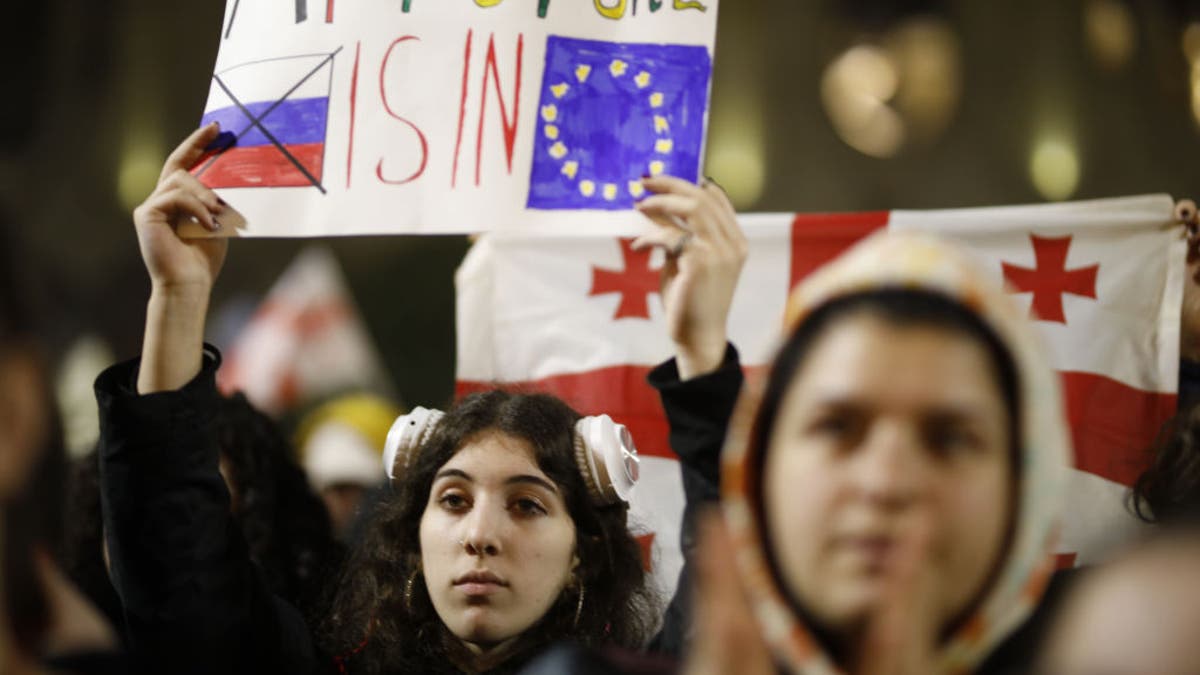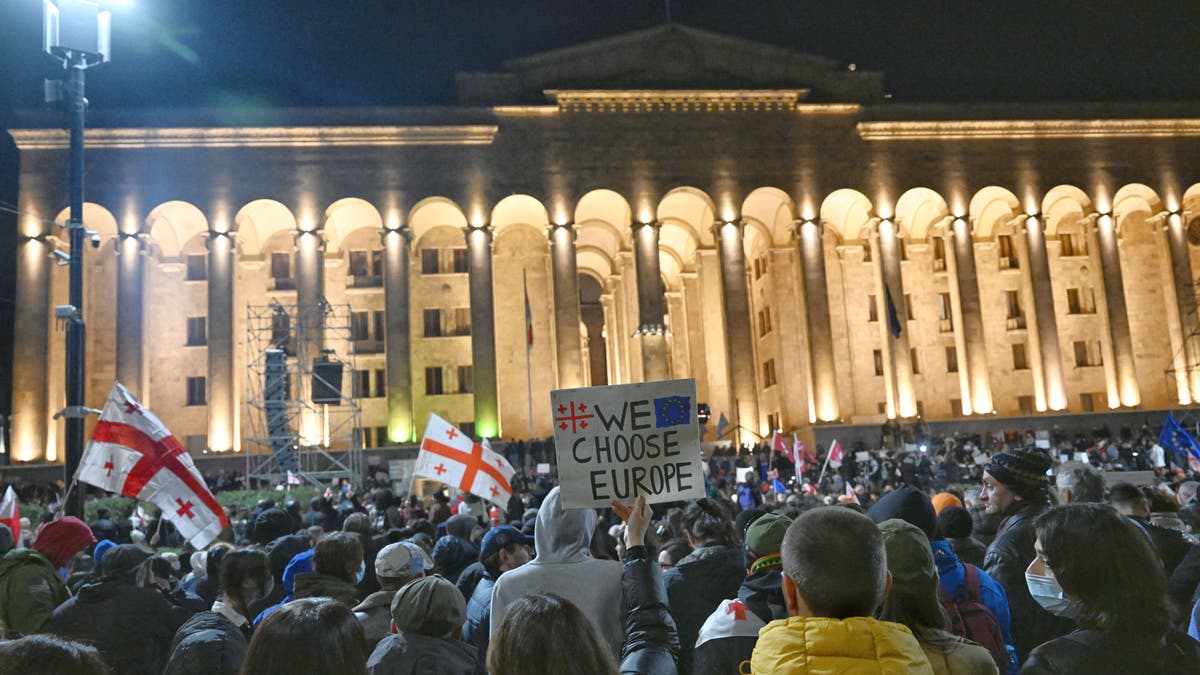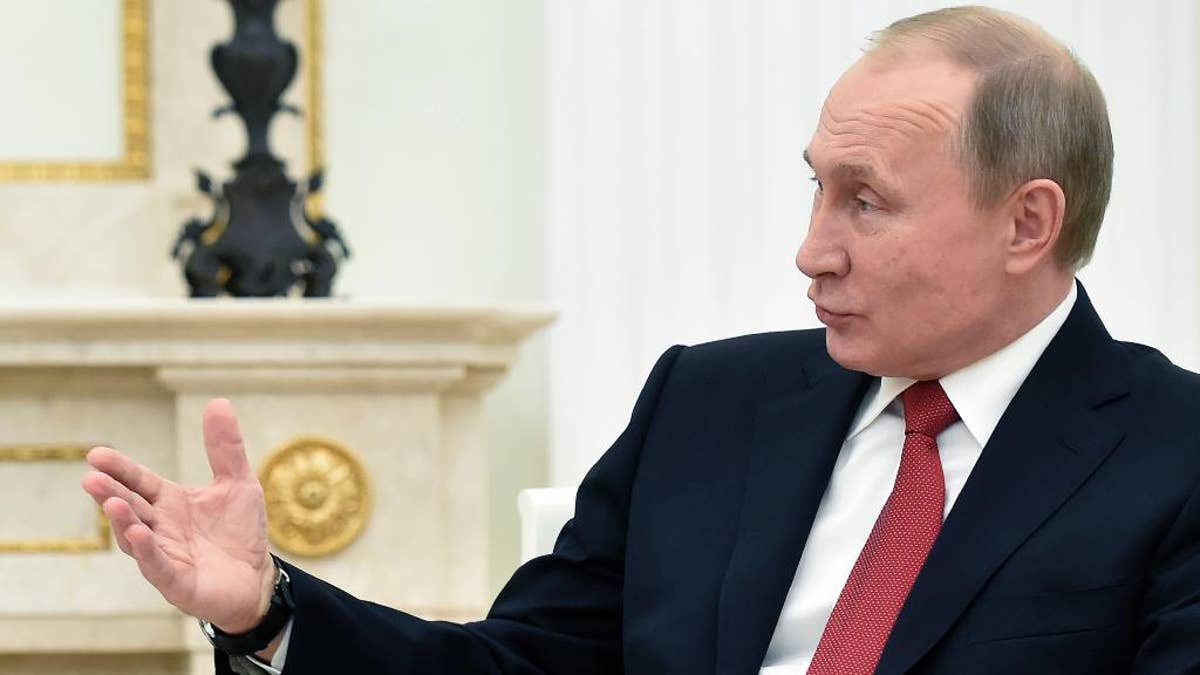Fox News Flash top headlines for March 9
Fox News Flash top headlines are here. Check out what's clicking on Foxnews.com.
Georgia's majority party withdrew a controversial "foreign agent" law that was working its way through the country's parliament after thousands of angry protesters took to the streets and squared off against riot police in the capital city of Tbilisi.
Protests grew increasingly violent as police used water cannons and tear gas to disperse the large crowds. Parliament's about-face on the bill is a victory for the protest movement and signals that the government is at least for now listening to public opinion.
Although the mood was said to be festive over the reversal, there are still struggles ahead to improve Georgia's democracy, and it's not yet clear whether the issue is permanently dead or is simply a delaying tactic until public outrage cools down.

Protesters take to the streets in opposition to a "foreign agent" bill that many believe would stifle free speech.
RUSSIAN THREAT TO UKRAINE COULD PUSH FINLAND, SWEDEN TO JOIN NATO
"While the Georgian authorities’ U-turn is a welcome step, the fight is likely not over. The authorities retreated not because they changed their mind about the bills, but because of the public relations disaster the bills provoked," Giorgi Gogia, associate director of the Europe and Central Asia Division at Human Rights Watch, told Fox News Digital.
John Herbst, who served as U.S. ambassador to Ukraine from 2003 to 2006, agreed.
"I hope that this is not just a pause by the Georgian government but a recognition that it must buttress, not undermine, democracy in Georgia," Herbst told Fox News Digital.
The draft bill required citizens, non-governmental organizations, media outlets and other civil society organizations that receive funding from abroad to register as a foreign agent with the Justice Ministry. The law would have imposed significant burdens and penalties that many human rights organizations believed would marginalize and discredit opposition voices and have a chilling effect on free speech.
The draft bill was initially supported by the ruling Georgia Dream party. Since declaring independence from the Soviet Union in 1991, Georgians have strong aspirations to join the European Union, with polls showing up to 83% of Georgians in support. Tbilisi formally applied for EU membership in March 2022 shortly after Russia’s invasion of Ukraine. While pro-Europe sentiment remains strong among the people, the ruling party is seen by many as sympathetic toward Russia and a roadblock to the Georgian people’s ambitions to join the EU.

Protesters demonstrate against the bill on foreign influence transparency in Tbilisi, Georgia, on March 9, 2023.
HISTORIC RUSSIAN ALLY SNUBS PUTIN IN GROWING SHIFT TO EUROPEAN UNION
"The government has been pretty careful to avoid steps that would annoy Moscow, and that includes turning their back on their longtime pal, Ukraine, since the invasion in 2022," Herbst said.
Georgia’s pro-Western president, Salome Zourabichvili, promised to veto the legislation if it passed and firmly supported the protesters. Prime Minister Irakli Garibashvili and his Georgia Dream party control a veto-proof majority in the parliament and would have likely overridden Zourabichvili’s actions.
Many of the people protesting believe the draft law would hurt Georgia’s path to EU membership and pull Georgia away from the West and closer to Russia. Much like Ukraine since the Euromaidan Revolution in 2014, Georgia has struggled with its identity as a former Soviet republic looking to integrate closer to Europe. There's strong belief among experts and policymakers that Ukraine's 2014 Revolution of Dignity and overthrow of its pro-Russian president is what ultimately led to Russia's invasion in 2022.

Georgian opposition supporters call for the government to drop a controversial "foreign agent" bill, which they say is reminiscent of Russian legislation used to silence critics, during a demonstration in Tbilisi on March 9, 2023. (Vano Shlamov / AFP via Getty Images)
For many of the protesters, the current impasse is all too familiar, and their own fight against Russian aggression still lingers as a not-so-distant historical memory.
Years before Russia annexed Crimea and launched its initial invasion of eastern Ukraine in 2014, Russia invaded Georgia in 2008 under what many experts believe to be a similar pretext of protecting Russian-speaking people in hostile territory. The five-day war ended with Russian-backed separatists controlling 20 percent of Georgian territory in South Ossetia and Abkhazia.
Russia employs similar tactics in Georgia that it used in Ukraine and other countries it considers in Russia's historic sphere of influence. Kremlin disinformation focuses on the idea of a shared past based on Christian values while portraying Europe as a hostile actor that opposes traditional principles of Orthodox Christianity. The main idea is to demonstrate that European integration is inherently incompatible with Georgian values.

Russian President Vladimir Putin (AP)
CLICK HERE TO GET THE FOX NEWS APP
Russia's main goal, as it's been in Ukraine, is to reverse the Euro-Atlantic aspirations of Georgian society and prevent further integration with European institutions.
"Within the context of the war in Ukraine, the disinformation narratives have become even more aggressive by pointing at the fate of Ukraine and portraying the ongoing war as a punishment that Ukraine receives for its European and Euro-Atlantic aspirations," Natia Seskuria, associate fellow at the Royal United Services Institute, told Fox News Digital.
